Philly to restage Mahler 8 premiere
mainIn March 1916, Leopold Stokowski’s performance of the Symphony of 1,000, its US premiere, pushed news of Verdun off the front pages and put the upstart Philadelphia on the world map. Next season, Yannick Nézet-Séguin will try to regenerate that excitement.
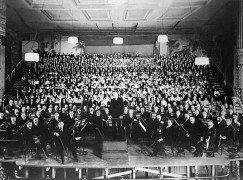
Press release below.
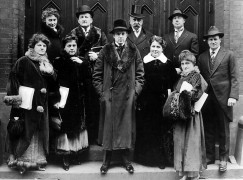
(Philadelphia, January 27, 2015)—Philadelphia Orchestra Music Director Yannick Nézet-Séguin and President and CEO Allison Vulgamore today announce The Philadelphia Orchestra’s 2015-16 season, a year-long exploration of the famous Philadelphia Sound and the composers and artists who have been drawn to, and inspired by it, over a century of music-making.
“I am excited and inspired by our 2015-16 season, which presents multiple ways for audiences to experience the legendary Philadelphia Sound, and focuses on an important aspect of our roots, the championing and premiering of new repertoire,” says Nézet-Séguin, who will be embarking on his fourth season with the world-renowned ensemble. “We will revisit great works that the Orchestra has premiered throughout its rich history, premiere new commissions, celebrate the musical legacy of the noble city of Vienna, and collaborate with the world’s finest guest artists, eager to share in the making of this magnificent Sound.”
“Since his arrival in Philadelphia, Yannick has brought boundless musical inspiration to our audiences, and an astonishing vitality to the Orchestra. He is undoubtedly the consummate guardian of the legendary Philadelphia Sound, and the ideal artistic leader to propel our ensemble forward,” says Philadelphia Orchestra President and CEO Allison Vulgamore. “For the past three seasons we’ve been opening a window on the rich and venerable Philadelphia Orchestra legacy, collaborating with the most accomplished conductors and artists. With our new season, we open our programming window even further, confident that thanks to the support of our entire community, we are grounded institutionally, providing curated seasons of musical discovery together.”
For over 100 years The Philadelphia Sound has captivated audiences around the globe and attracted the world’s most accomplished composers and soloists—from Rachmaninoff, Mahler, Sibelius, and Stravinsky, to John Williams, Yo-Yo Ma, Lang Lang, James Levine, and more. Chief among the works embodying the Philadelphia Sound is Mahler’s Symphony No. 8 (“Symphony of a Thousand”), which received its U.S. premiere a century ago. The masterpiece will be featured prominently in the 2015-16 season along with 11 other works that received world or U.S. premieres by The Philadelphia Orchestra.
Other season highlights include the world premiere of a new oratorio by American composer Hannibal, commissioned by The Philadelphia Orchestra; new works for Philadelphia Orchestra principal players; a three-week festival focusing on the music of Vienna; a tribute to composer and conductor John Williams featuring cellist Yo-Yo Ma and, in a separate, special event, the composer himself; artistic collaborations with Stage Director James Alexander; as well as guest appearances from the world’s most esteemed and revered conductors and soloists. Music ranges from the Baroque and period-informed to the contemporary and includes new works and beloved masterpieces, as well as some great composers—Miaskovsky, Janáček, Casella—that have been underrepresented in the repertoire.
The 2015-16 season also includes the Philadelphians’ annual subscription series at Carnegie Hall plus Family Concerts and Collaborative Learning activities, holiday performances, a return to China, residencies in three summer venues, a Florida tour, and other special events.
2015-16 Season Highlights Overview:
¨ Yannick Nézet-Séguin assembles massive forces for performances of Mahler’s Symphony No. 8 (“Symphony of a Thousand),” marking the centennial of the U.S. premiere, which was given by The Philadelphia Orchestra and Leopold Stokowski at the Academy of Music in 1916.
¨ A yearlong exploration of the famous Philadelphia Sound with a dozen works that were given world or U.S. premieres by The Philadelphia Orchestra.
¨ Nézet-Séguin leads a three-week Music of Vienna festival in January.
¨ Nézet-Séguin leads the Orchestra in the world premiere of American composer Hannibal’s new oratorio, One Land, One River, One People,commissioned by The Philadelphia Orchestra.
¨ Principal Guest Conductor Stéphane Denève presents a two-week tribute to composer and conductor John Williams with subscription concerts featuring Yo-Yo Ma and a special one-night-only event starring the composer himself on the podium.
¨ Artistic collaborations with Stage Director James Alexander, including theatrically informed presentations of Handel’s Messiah conducted byYannick Nézet-Séguin and a staged, complete version of Stravinsky’s The Soldier’s Tale led by Conductor-in-Residence Cristian Măcelaru.
¨ A number of esteemed conductors return to lead The Philadelphia Orchestra. Conducting two-week residencies are Donald Runnicles andGianandrea Noseda. Also returning for subscription concerts are Marin Alsop, Robin Ticciati, Fabio Luisi, Vladmir Jurowski, and James Levine. Andrés Orozco-Estrada, Ton Koopman, and Pablo Heras-Casado make their conducting debuts. Bramwell Tovey returns to lead the Glorious Sound of Christmas concerts.
¨ Many notable soloists return, including Lang Lang, Hilary Hahn, Gil Shaham, Yefim Bronfman, Simon Trpčeski, and Hélène Grimaud.Soloists making their subscription debuts include Daniil Trifonov and Alexandre Tharaud.
¨ Five principal players of The Philadelphia Orchestra appear as soloists: Concertmaster David Kim, Principal Cello Hai-Ye Ni, and Principal FluteJeffery Khaner. Principal Clarinet Ricardo Morales and Principal Timpani Don Liuzzi premiere new works commissioned for them.
¨ Season highlights also include the Orchestra’s annual subscription series at Carnegie Hall; educational and community performances including a Family Concert series, Neighborhood Concerts, and the annual Martin Luther King Jr. Tribute; plus holiday programs and other special events.


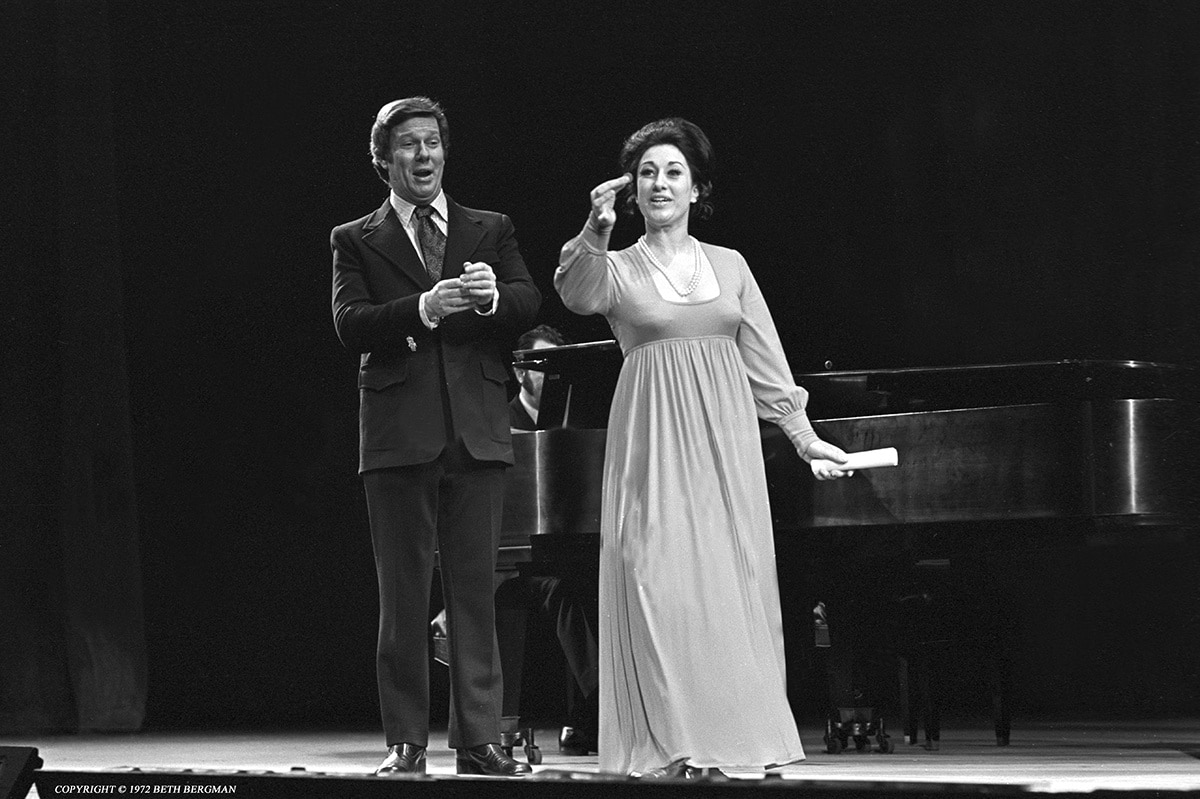
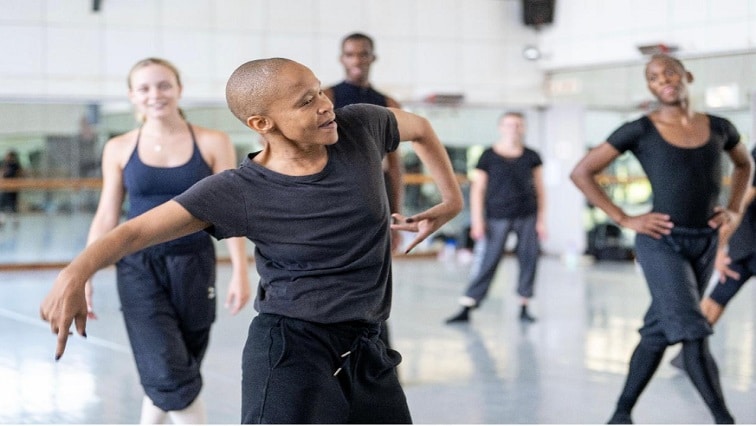
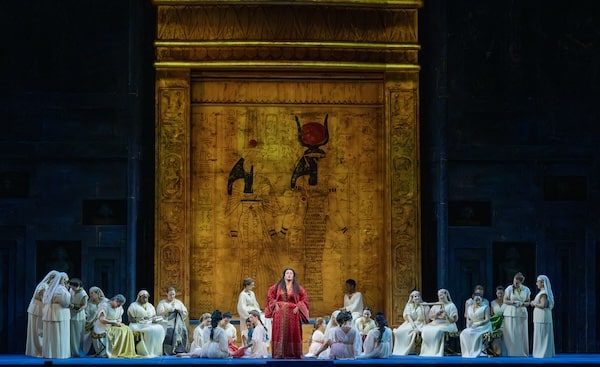
James Levine returning to guest conducting is the main news here.
Mahler’s 8th was premiered by the Munich Philharmonic in 1910 in an unusual hall called the Neue-musik Festhalle which now houses the transportation exhibit of the city’s natural sciences museum. There’s a picture of the hall here during the final rehearsal:
http://en.wikipedia.org/wiki/Symphony_No._8_%28Mahler%29#Reception_and_performance_history
Mahler’s assistant conductors were Bruno Walter and Otto Klemperer. Anton Webern was in the audience for the premiere and wrote to Arnold Schoenberg about it:
“I can’t tell you how beautiful Mahler’s symphony is … The first movement is unprecedented in its impact. The loudness at the end reaches a high peak … It’s hardly bearable. As a whole, the work is barely conceivable, and I’m still completely bowled over by it.”
There’s a lot of Mahler in Webern for those with the ears to hear it – something the post-Webern serialists never seemed to understand. During Celibidache’s 17 year (or so) reign at the Munich Phil, the orchestra never performed Mahler under him since he disliked his music, saying it had no form. Celi thought Mahler’s songs were better and at least conducted the “Kindertotenlieder.
Thielemann wanted to do the Munich 100th in that hall, shifting the vintage buses and trams, but logistics were too tough, so we had to tolerate the shitty Gasteig. As it turned out, tenor Fritz and CT’s variable conducting undermined the concert anyway.
About Mahler’s music, I’m in agreement with Celi.
No doubt that Thielemann would have suggested immortal works from such great composers as Hans Pfitzner, Carl Orff and Werner Egk.
Yannick conducted the Mahler 8 at the National Arts Centre in Ottawa and in Montreal a couple of years ago with both the NACO and L’Orchestre Métropolitaine de Montreal, and a massive chorus comprising members of every pro choir in the area. It was a lovely season finale. He has the chops for this — the Philly concert should be electric.
Yet Mahler’s 8th symphony was in fact heard during Celibidache’s tenure with the Munich Philharmonic, but under guest conductor Lorin Maazel. Indeed, Mahler was not at all absent from the programs of the orchestra during Celi’s time. Both Maazel and Seiji Ozawa, for example, conducted the 2nd symphony, and there are more examples which I don’t have at hand.
And here’s a story which I don’t know how true it is. It seems that during the 60s Celi did in fact rehearse Mahler’s 1st with one of the Italian Radio Orchestras he conducted in that era, but he decided against performing it in public concerts. Again’ I can’t vouch for veracity.
The story would not be without correlations. I don’t remember the details. Perhaps someone will know more, but at one point he cancelled a performance by the Munich Phil of a work by Ravel (or Debussy?) with a declaration to the effect that the Munich Phil couldn’t understand French music or something along those lines. (Nonsense, of course.)
One of my favorite stories from Celi’s Italian era: He was known for abusing musicians. While conducting in Bologna he was giving a bassoonist lots of grief. The gentleman finally had enough and said, “Non suono per un zingaro!” and walked out.
After Ozawa conducted Mahler’s 2nd with the Munich Phil he said the Gasteig acoustics were so bad he would never return. In any case, the performance was well received.
Good to know that a racist insult (as zingaro is to Romanians, and in fact to Italians, and even to the Roma population) is one of your favorite things. But your bigotry and crass disregard for the facts were never in doubt for anyone sane.
As for the cancellation of a Debussy or Ravel, allow me to have doubts, as Celi repeatedly performed their music both in Munich and on tour. So let’s wait to see if anyone else confirms. The one reason why I give benefit of the doubt is that Celi did in fact rehearse a piece he did not ultimately perform: it was one of his own compositions, the Romanian Suite.
Celibidache did, in fact, have a gypsy heritage. As Daniel Baremboim pointed out, it represented both the best and worst sides of his character. (I suppose that makes him a “racist” too.) It was good that the Italian musician refused to accept his abuses, and let him know it, but this is, of course, nothing a Celi groupie would ever concede.
Surprise, surprise, calling names. For what it’s worth I am not a Celi “groupie” (I do however more often than not like his music making) and in fact I believe that Celi was wrong in how he treated your wife. I also don’t condone his abuses – which let’s face it, were less than those of Reiner, Szell, or even Toscanini to give a few obvious examples.
But if talk about Celi’s character, let’s have the whole picture. He’s known to have demanded good wages for his Munich orchestra – in fact that’s one of the first things he did when he arrived, and he was genuinely concerned for them (those who were at his good side, that is.) Those who knew him in private life say mostly good things about him. Many of his dogs were also rescues from the pound.
Barenboim’s comments were nuanced and painted a balanced picture of a great yet flawed human being. What the Italian musician did was simply throwing a racist insult, which, unsurprisingly, you applaud.
With all the braying about the “Philadelphia Sound,” let’s not forget that the Orchestra’s current contracted string section is roughly ten short of Ormandy’s 67 strings. One wonders if the new contract to be negotiated before next season’s start will restore players chopped off during the last “bankruptcy” negotiation and whether wage reductions will also be restored.
As a Philadelphia Orchestra concertgoer, I’ve been very happy with Yannick as Music Director, and I’m looking forward to seeing him conduct Mahler’s 8th. But the big news in this announcement, IMO, is the return of James Levine to Philadelphia after 20 years.
He was, of course, a frequent guest years ago and made recordings of Mahler and Mendelssohn recordings in Philly. This will be his first concert outside of NYC since his return to the podium in 2013.
Maybe Muti will return too
What is YNS looking at on the front page of the season brochure?
https://www.philorch.org/sites/default/files/2015-2016_Season_Brochure_SP.pdf
Isn’t every season at The Philadelphia Orchestra “a year-long exploration of the famous Philadelphia sound”? Isn’t this a bit like saying “Join us for the NY Phil’s 2015-16 season, a year-long exploration of the shades of orange in the carpet at Avery Fisher Hall.”
I just glanced at the first 6 or 7 pages, and there are THREE photos of him in which he is gazing at some indeterminate point outside the camera’s field.
Sigh. This was a reply to Martin Locher. Am I the only one whose replies invariably get published as separate, unthreaded comments?
Will Philly play it at the Academy of Music? That would be a closer approximation to the premiere.
Perhaps somebody out there knows when the term “Philadelphia Sound” came into use. I wouldn’t be surprised to learn of a date after the Stoky Mahler 8 performance. Perhaps it was during his later experimentation with orchestral seating layouts. In any case, any recreation of Stokowski’s Mahler 8 should take notice of his use of the then standard divided violin/cellos left/violas right string layout. The Philly Mahler 8 photograph as well as every picture of Mahler in front of an orchestra shows this layout, which Mahler enthused about to Natalie Bauer-Lechner. The photo of Mahler rehearsing the 8th also shows the double basses at the rear of the orchestra as well as the frequently encountered rather steep terracing of the orchestra, which should do wonders for woodwind clarity from orchestra-level seats.